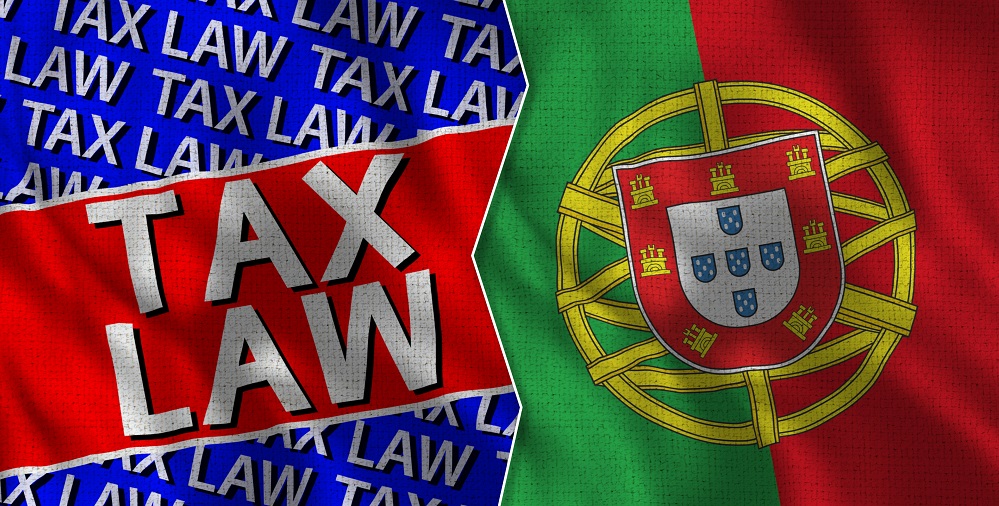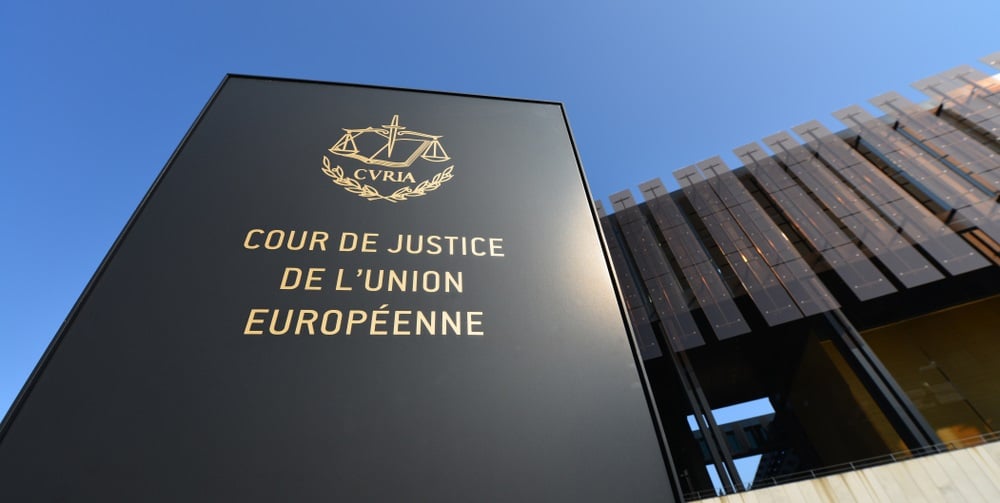Why Portugal’s Tax-Free Crypto Trading Matters for Bitcoin
 Cryptocurrency enthusiasts and businesses in the industry have had to put up with regulatory uncertainty for quite some time. The strong desire to tap into their incomes and profits goes hand in hand with failure on behalf of authorities and regulators to fully understand the nature of decentralized digital assets. Not to mention how absurd the reluctance to legalize something they want to tax anyway. Cases in Portugal show that it’s hard to positively know what exactly traders, investors and companies owe the state. Luckily, the narrow scope of the local tax legislation means they have to pay less than in other countries. Also read: Crypto Salaries Gain Regulatory Recognition Around the World
Cryptocurrency enthusiasts and businesses in the industry have had to put up with regulatory uncertainty for quite some time. The strong desire to tap into their incomes and profits goes hand in hand with failure on behalf of authorities and regulators to fully understand the nature of decentralized digital assets. Not to mention how absurd the reluctance to legalize something they want to tax anyway. Cases in Portugal show that it’s hard to positively know what exactly traders, investors and companies owe the state. Luckily, the narrow scope of the local tax legislation means they have to pay less than in other countries. Also read: Crypto Salaries Gain Regulatory Recognition Around the WorldCrypto Exchange Exempt From VAT, Trading Gains Spared From Tax
A report by the Portuguese business daily Jornal de Negócios, quoted recently by crypto outlets whose interpretation was then copied by mainstream media, released some details about the Portuguese tax system that turn the country into sort of a crypto tax haven, at least until powers in Brussels make up their mind about bitcoin taxation or Lisbon amends its tax code. According to the newspaper, the Portuguese Tax and Customs Authority, which had already determined that crypto trading income is not subject to taxation, has recently stated that cryptocurrency exchange and payments are exempt from VAT. The latest clarification has been issued by Autoridade Tributária e Aduaneira (the Portuguese Tributary and Customs Authority) in response to a request from a Portuguese company planning to establish a crypto mining operation. The owners wanted to acquaint themselves with the legal provisions that govern the accounting procedures and tax obligations related to the activity. In its filing, the entity explains the process of minting digital coins and notes, and that there are two aspects that concern taxation – the miner’s reward in cryptocurrency and the exchange of that yield into fiat money. In its reply, the tax authority quotes local regulations and European law to conclude that the transactions related to mining, both the remuneration and the exchange, should be exempted from VAT. An earlier statement by the agency addresses another aspect of crypto taxation. The document was issued almost three years ago in response to a request for guidance on how tax rules apply in relation to revenue received from the purchase and sale of cryptocurrencies. In its explanation, the regulator notes that cryptocurrencies can generate different types of taxable income. These include gains from buying and selling digital coins, commissions charged for the provision of services related to acquisition or use, and gains derived from the sale of products or services for cryptocurrency. Portuguese tax agents elaborate that income generated by trading can fall in three different categories – capital gains (G), capital income (E) and corporate or professional income (B). Category G covers the sale of securities, financial derivatives, certificates whose holders can receive value from an underlying asset, and some other instruments. However, as legislators have chosen to adopt a closed definition, tax can be levied only on the items mentioned in the law, and cryptocurrencies are not in the list. Digital coins do not fall in category E, either, which pertains only to income generated from capital investments. If applicable, category B prevails over the other two. Income in this category is taxed based on the exercise of an activity and not according to its source. Portugal’s tax code states that if this is an activity oriented toward profit making, the taxpayer is obliged to issue invoices whenever they sell a product or provide a service. The tax agency then draws the conclusion that the sale of cryptocurrency is not taxable under the current tax legislation unless it constitutes a taxpayer’s professional or business activity, in which case it will be taxed in category B. The current state of the tax treatment of crypto trading conducted by private individuals was confirmed by a representative of the professional services network Deloitte. “Portugal does not tax the increase of value of any currency nor the gain on the sale of any currency. Obviously, any currency losses may not be offset against any gains either,” explained Luis Leon, tax partner at Deloitte Portugal. Noting that the matter has already been analyzed by the country’s tax authority, which issued a ruling with this position, Leon told news.Bitcoin.com:
Portuguese tax agents elaborate that income generated by trading can fall in three different categories – capital gains (G), capital income (E) and corporate or professional income (B). Category G covers the sale of securities, financial derivatives, certificates whose holders can receive value from an underlying asset, and some other instruments. However, as legislators have chosen to adopt a closed definition, tax can be levied only on the items mentioned in the law, and cryptocurrencies are not in the list. Digital coins do not fall in category E, either, which pertains only to income generated from capital investments. If applicable, category B prevails over the other two. Income in this category is taxed based on the exercise of an activity and not according to its source. Portugal’s tax code states that if this is an activity oriented toward profit making, the taxpayer is obliged to issue invoices whenever they sell a product or provide a service. The tax agency then draws the conclusion that the sale of cryptocurrency is not taxable under the current tax legislation unless it constitutes a taxpayer’s professional or business activity, in which case it will be taxed in category B. The current state of the tax treatment of crypto trading conducted by private individuals was confirmed by a representative of the professional services network Deloitte. “Portugal does not tax the increase of value of any currency nor the gain on the sale of any currency. Obviously, any currency losses may not be offset against any gains either,” explained Luis Leon, tax partner at Deloitte Portugal. Noting that the matter has already been analyzed by the country’s tax authority, which issued a ruling with this position, Leon told news.Bitcoin.com:In that context, Portugal is a positive example in Europe, where many other countries tax profits from crypto trading–either by imposing capital gains tax or as part of the income tax base in general. Other exceptions in the region include Slovenia, where capital gains of individual investors trading cryptocurrencies are not reported and taxed, and Belarus, which last year introduced tax breaks for crypto incomes and revenue from mining, issuing, and trading coins for a period of five years. Malta and Germany do not tax long-held crypto assets. And in Switzerland, cryptocurrency gains of individual traders are treated as tax-exempt capital gains, but an annual wealth tax is levied on the total amount of coins you hold as part of your net worth.Cryptocurrencies are no different from a Portuguese tax perspective. Accordingly, the appreciation of cryptocurrencies or any gains on the direct sale of cryptocurrencies are not taxed in Portugal.
Which Taxes Apply to Cryptocurrencies
To better understand how taxation affects crypto incomes and profits, one needs to have a basic idea of the differences between the main types of applicable taxes. In most cases, both natural persons and corporate entities are obliged to pay a number of direct and indirect taxes. A direct tax such as the personal income tax is imposed upon a person or their property, while an indirect tax like VAT is levied on transactions. Crypto incomes can fall under multiple categories depending on the legal status of the taxpayer and the nature of the transaction. In countries where the Value Added Tax system is implemented, the majority of the world’s jurisdictions, VAT is typically charged on the final value of a product or service sold to an end user. Currencies are neither products nor services, so by default no VAT should be imposed over their purchases or sales in exchange operations. There’s an ongoing debate about the nature of decentralized digital coins. In some countries, different regulators have varying opinions on how to treat cryptocurrencies. In the U.S., for example, the Treasury referred to bitcoin as a convertible decentralized virtual currency in 2013. Two years later, the Commodity Futures Trading Commission (CFTC) classified it as a commodity. At the same time, the Internal Revenue Service (IRS) taxes cryptos as property. Then, last year, bitcoin was mentioned in a ruling by the U.S. Supreme Court in light of the need of a “broader understanding” of what money is nowadays. In Europe, at least for the moment, the treatment of cryptocurrencies for regulatory and tax purposes has largely been determined by a decision of the European Court of Justice. In October 2015, ECJ stated that bitcoin represents a means of payment and its exchange should therefore be exempted from VAT. According to the ruling in the Skatteverket v Hedqvist Case C-264/14, the exchange of bitcoin falls within the exemption in Article 135(1)(e) of EU’s VAT Directive, which covers transactions concerning currency, bank notes, and coins used as legal tender. David Hedqvist is a Swedish national who planned to launch a crypto exchange platform that would profit from the margin between bid and ask prices. He sought clarity regarding the VAT treatment of this kind of revenue and received an opinion from the Swedish Revenue Law Commission (Skatterättsnämnden) stating that the services he intended to provide would be exempt from VAT under Article 135. However, the Swedish Tax Administration (Skatteverket) disagreed and appealed the matter to the country’s Supreme Administrative Court, which in turn referred the case to the ECJ. The other category of taxes that can be applied to crypto-related income includes direct taxes. One of the most common of them, the corporate tax, is generally imposed on the income or capital of business entities, and companies working in the crypto industry are no exception. In most cases the tax is levied on a corporation’s net profits, but governments may also tax shareholders if they are paid dividends. Investments in cryptocurrencies can be subject to capital gains tax. These gains are usually realized from the sale of stocks, bonds, precious metals like gold, antiques, real estate, and property. In some jurisdictions, crypto assets are part of that list as well. The capital gains tax, where it’s imposed, can come in different rates for individuals and corporations. Certain countries may charge only professional traders. Germany is another interesting example in Europe. The Bundesrepublik does not tax long-term investments in cryptocurrency. If a private trader sells their bitcoin more than a year after its purchase, the profit is exempt from capital gains tax. The same applies to annual profits of less than €600. That means keeping digital coins in Germany will actually save you money. And regardless of how much profit you make when you sell the cryptocurrency after hodling for over a year, you don’t owe the state any tax on your gains.
David Hedqvist is a Swedish national who planned to launch a crypto exchange platform that would profit from the margin between bid and ask prices. He sought clarity regarding the VAT treatment of this kind of revenue and received an opinion from the Swedish Revenue Law Commission (Skatterättsnämnden) stating that the services he intended to provide would be exempt from VAT under Article 135. However, the Swedish Tax Administration (Skatteverket) disagreed and appealed the matter to the country’s Supreme Administrative Court, which in turn referred the case to the ECJ. The other category of taxes that can be applied to crypto-related income includes direct taxes. One of the most common of them, the corporate tax, is generally imposed on the income or capital of business entities, and companies working in the crypto industry are no exception. In most cases the tax is levied on a corporation’s net profits, but governments may also tax shareholders if they are paid dividends. Investments in cryptocurrencies can be subject to capital gains tax. These gains are usually realized from the sale of stocks, bonds, precious metals like gold, antiques, real estate, and property. In some jurisdictions, crypto assets are part of that list as well. The capital gains tax, where it’s imposed, can come in different rates for individuals and corporations. Certain countries may charge only professional traders. Germany is another interesting example in Europe. The Bundesrepublik does not tax long-term investments in cryptocurrency. If a private trader sells their bitcoin more than a year after its purchase, the profit is exempt from capital gains tax. The same applies to annual profits of less than €600. That means keeping digital coins in Germany will actually save you money. And regardless of how much profit you make when you sell the cryptocurrency after hodling for over a year, you don’t owe the state any tax on your gains. 
Significance for Traders
Portugal’s decision not to tax direct gains on the appreciation or sale of cryptocurrency and ECJ’s ruling that VAT is not applicable to exchange transactions have considerable significance for traders. And it’s not only because crypto users are spared some taxes. Both actually tip the scales in favor of Bitcoin’s currency status in times when lawmakers and regulators are trying to wrap their heads around a phenomenon born as a result of financial evolution. With many analysts now pointing towards the next big crisis on the horizon, the importance of cryptocurrencies is likely to grow further, with more investors, traders, and ordinary users attracted to the space. If you are looking to securely acquire bitcoin cash (BCH) and other leading cryptocurrencies, you can do that with a credit card at buy.Bitcoin.com. You can also freely trade your digital coins using our noncustodial, peer-to-peer trading platform. The local.Bitcoin.com marketplace already has thousands of users from around the world and is growing fast. Also, check out our newly launched premier trading platform exchange.Bitcoin.com. Registered users can access it right now and over 10,000 have signed up already. Do you expect cryptocurrencies to eventually gain full recognition as currencies from authorities and regulators? Tell us what you think on this subject in the comments section below.Images courtesy of Shutterstock.
Do you need a reliable bitcoin mobile wallet to send, receive, and store your coins? Download one for free from us and then head to our Purchase Bitcoin page where you can quickly buy bitcoin with a credit card. The post Why Portugal’s Tax-Free Crypto Trading Matters for Bitcoin appeared first on Bitcoin News.
Belarus capital gains crypto crypto trading Direct taxes ECJ Europe Exemption Gains income tax indirect taxes Portugal profits sales slovenia Tax tax code tax exempt tax law tax rules Taxation Taxes vat



